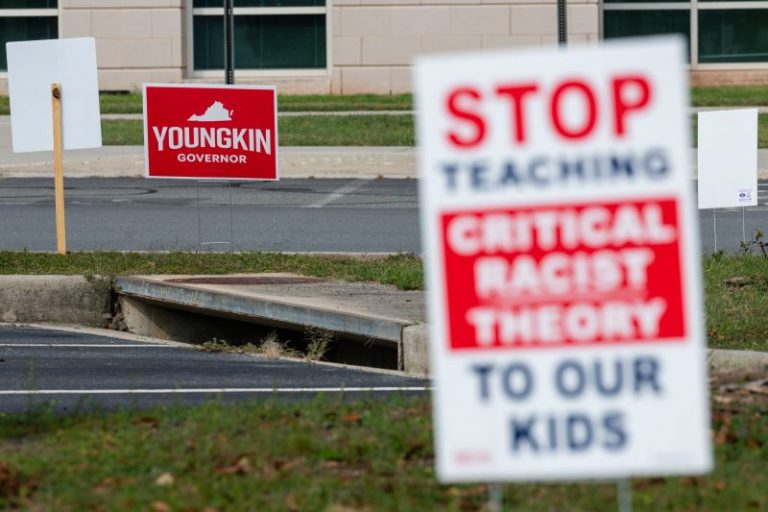In a court fight over school anti-bias initiatives in Virginia, an attorney for a conservative advocacy group representing the plaintiffs quoted one of Chief Justice John G. Roberts Jr.’s most famous proclamations: “The way to stop discrimination on the basis of race is to stop discriminating on the basis of race.”
Roberts made the comment in 2007 as part of a decision that struck down voluntary school desegregation plans in the states of Washington and Kentucky. And some might assume that the three Republican-nominated appellate court judges in Richmond weighing the Virginia case could be a receptive audience for the comment.
But Judge Paul V. Niemeyer took the opportunity to opine on why he thought Roberts’s formulation fell short.
“That’s a cute phrase,” the Reagan appointee to the U.S. Court of Appeals for the 4th Circuit said. But in cases where juries identify racial discrimination, he said, “we provide remedies that … take race into account. … When you have discrimination and you create a particularized remedy, it necessarily has racial aspects to it.”
The exchange came last week in a lawsuit involving anti-bias initiatives in Loudoun County’s public schools. Parents in Loudoun are suing over “student equity ambassadors” tasked with sharing examples of racial discrimination and bias with administrators, saying the initiative discriminates against White conservatives and chills free speech.
The lawsuit reached the federal appellate court after a district court judge ruled in January that there was no constitutional violation in the matter, only a disagreement over priorities that should be handled within the school system.
The case is part of a backlash across the country against school programs intended to combat racism, with similar cases finding success at the collegiate level in multiple states.
The Loudoun program was created after a districtwide audit found that Black, Latino and Muslim students “were particularly affected by racial insults or slurs, and even racially motivated violent actions,” in the words of a court filing from the school board.
“The question is … how far back do you go” in looking at what constitutes racial discrimination, Niemeyer said. “That’s not an easy issue for us to tackle.”
In pushing back against Roberts’s assessment on race in the desegregation case, Niemeyer referenced laws governing workplace discrimination by private employers, something experts say conservatives on the Supreme Court and in lower courts have not moved to undo while rolling back broader racial protections in other realms. The Supreme Court in 2020 expanded its reading of workplace discrimination to include transgender people, a decision Roberts joined.
Some fear that the Supreme Court could upend interpretations of protections that have been in place for decades.
“This extremely aggressive Supreme Court could revisit that precedent,” said Kenji Yoshino, a constitutional law professor at New York University. “But for now, lower courts are bound by it, not by the chief justice’s statement.”
Miranda McGowan of the University of San Diego School of Law said similar precedent to the workplace protections applies in a school context.
“When a court finds that the government has indeed discriminated on the basis of race [then] the government can (and indeed must) fashion a race-conscious remedy to cure the racial discrimination,” she wrote by email. “What the Supreme Court has foreclosed is action to address broader societal discrimination.”
The Loudoun case may be decided on narrower grounds. All three judges on the appellate court panel expressed skepticism that the parents could challenge the program as racially discriminatory when none of their children had applied to be ambassadors. In a draft announcement that became public, Loudoun County Public Schools described the ambassadorship as “specifically for students of Color.” But by the time the program was implemented, White students could serve — and since then have served — as ambassadors, the judges noted.
“I haven’t seen where you have pled that you have been denied admission or excluded or even wanted to … become a student equity ambassador,” Judge A. Marvin Quattlebaum Jr., a Trump appointee, told the plaintiffs’ attorney at oral argument. “You just have a disagreement with it.”
The program website says the students should have “a passion for social justice.” Daniel Suhr of the Liberty Justice Center said the students he represents for the plaintiffs “did not apply because they knew they would not be accepted.”
But the judges were more open to the idea that school investigations of alleged student bias might chill free speech by, in Niemeyer’s words, encouraging “student-on-student snitching” about “heated” school discussions.
Suhr said after the hearing that it was “encouraging that … the court consistently recognized the importance of those free speech rights in the school context as much as in any part of our society.”
Andrew Selman, arguing for the school board, said there was no evidence of students being disciplined over allegations of bias: “The chill has to be reasonable.”
In January, U.S. District Judge Anthony Trenga ruled that the parents failed to show that the school system’s diversity initiatives violate the First Amendment and the equal-protection clause of the U.S. Constitution.
“While the specific course chosen by the [Loudoun County School Board] to promote a more inclusive, non-discriminatory environment can be reasonably debated, addressing the effects of invidious discrimination within the educational environment is clearly a legitimate pedagogical concern,” Trenga wrote. “Local school boards, not the courts, have the responsibility and obligation to assess how best to advance those pedagogical concerns.”

